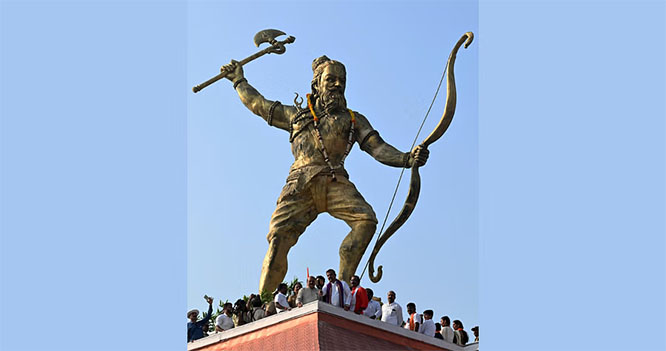New Delhi, Sept 12: Eggs are considered to be the most common breakfast item in every household across the globe, barring pure vegetarians and vegans, of course.
In any way and in any form, eggs can be touted as your daily dose of health. Poached, fried, boiled or scrambled – eggs form a wholesome part of a person's diet.
In India, however, there may be a high risk of egg contamination that's making them unfit for consumption.
Poor rearing practices and lack of technical know-how in Indian poultry farms may lead to contamination of eggs, a research has suggested.
As per the study, there are chances that they could be using contaminated feeds or using feed ingredients without any knowledge of their nutritive value which can effect egg production.
Also unhygienic rearing practices and lack of quality control measures can easily lead to egg contamination. It is not just the poultry farmers but traders, exporters and even consumers are unaware of the health risks of egg contamination.
Developed countries take measures to sterilise the egg surface from contamination especially from Salmonella enteritidis. In India no such measures are taken and risk of egg contamination increases.
"India has become a leading poultry producer but the potential to reach the global markets is not very bright as the quality of the products does not meet international standards. Indian eggs are often rejected for export because of the presence of chemical residues on egg shells," says Dr. Saurabh Arora, Founder of Food Safety helpline and Food Safety Mobile App.
Recently, a number of eggs in the domestic market, in retail shops were collected and tested and were found to contain large amounts of salmonella both on the shell and inside the egg.
However, fresh eggs collected from farms indicated less salmonella contamination. Since most consumers buy eggs from retail outlets the chances of contracting salmonella infection increases.
Lack of food safety procedures, improper storage facilities and poor transportation are some of the other causes of deterioration in eggs. The FSSAI has proposed standards for fresh eggs in the Food Safety and Standards (Food Products Standards and Food Additives) Amendment Regulations, 2017.
These standards will come into force once they are approved. The FSSAI has laid down parameters which state that the eggshells must be free of blood rings, must not be soiled or have faecal matter and they must not be cracked or leaking.
FSSAI has laid down the amount of water, protein, fats and carbohydrates that eggs must contain as also the hygienic parameters and hygienic controls, like time and temperature, that must be observed during production, processing and handling which includes sorting, grading, washing, drying, treatment, packing, storage and distribution to point of consumption. FSSAI has laid emphasis on the storage conditions like moisture and temperature so as to reduce microbial contamination as microbial pathogens are a risk to human health.
Food safety practices for eggs
A number of surveys have been conducted which suggest that consumers have less awareness of food safety risks of eggs as compared to other foods. Most people will follow the hygienic practices when handling chicken meat and fish but will overlook the recommended practices for eggs. It is not a wrong observation that people do not wash their hands after handling eggs or even after breaking raw eggs when cooking.
This is probably because of the perception that eggs are generally safe. They are indeed safe if they have been cooked properly, which means that they must be cooked till their yolks and whites have become firm. Dishes that contain eggs as ingredients must reach an internal temperature of 160o Fahrenheit which is the temperature required for salmonella to be destroyed through cooking.
Besides cooking eggs thoroughly there are other food safety practices that you need to follow when handling eggs to prevent cross-contamination.
• Egg handlers must wash hands with soap and clean surfaces and utensils that have come in contact with raw eggs.
• Containers that have been used to process raw eggs must not come in contact with ready-to-eat food.
• Separate eggs in the grocery bags when shopping and in the refrigerator when storing.
• Temperature of the refrigerator must be maintained at 33 to 40o Fahrenheit.
• If eggs are left outside after refrigeration then they need to be discarded within two hours.
• Refrigerate eggs only after they have been washed.
• Eggs must be consumed within two weeks.
• It is advisable not to eat raw eggs.







Comments
Add new comment